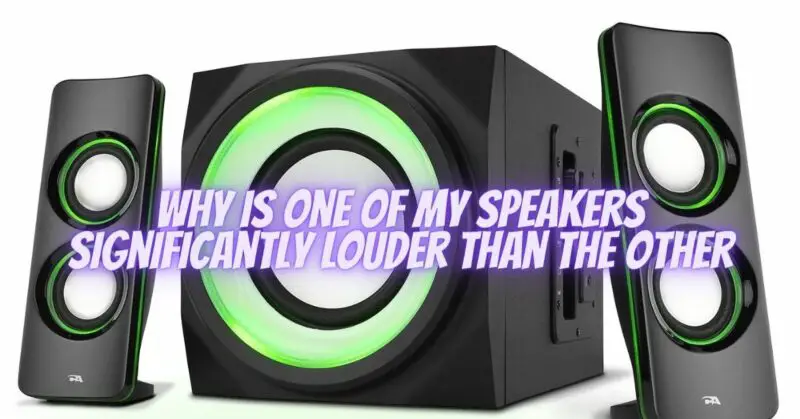Experiencing intermittent audio loss or signal interruptions in your speakers can be frustrating, impacting your enjoyment of music, movies, or other audio content. These issues can stem from various sources, including faulty connections, damaged cables, or internal speaker problems. In this article, we will guide you through the process of troubleshooting and fixing a speaker that intermittently cuts out or loses audio, helping you restore consistent sound playback.
- Check the Speaker Connections:
a. Verify the Wiring: Ensure that the speaker wires are securely connected to both the speaker terminals and the amplifier or receiver. Loose or poorly connected wires can cause intermittent audio loss. Carefully inspect the connections, tightening them if necessary.
b. Replace or Repair Damaged Cables: If you notice any visible damage or fraying in the speaker cables, replace them with new ones. Damaged cables can disrupt the audio signal and lead to intermittent audio loss.
c. Clean the Connections: Over time, dust, dirt, or corrosion can accumulate on the speaker terminals and connector pins. Clean the connections using a contact cleaner or a cotton swab dipped in rubbing alcohol to ensure optimal conductivity.
- Examine the Source and Amplifier:
a. Check Source Connectivity: If you’re using an external audio source such as a smartphone, computer, or media player, ensure that the connection to the amplifier or receiver is secure. Wiggle the cables gently to see if the audio cuts out, indicating a loose connection.
b. Test with Another Source: Try connecting a different audio source to the amplifier or receiver to determine if the issue lies with the source device. If the audio still intermittently cuts out, the problem is likely with the speaker or amplifier.
c. Inspect the Amplifier: If you suspect the amplifier or receiver is causing the issue, check for any visible signs of damage, loose connections, or overheating. Consult the amplifier’s manual for troubleshooting steps specific to your model.
- Identify Internal Speaker Problems:
a. Driver Inspection: Examine the speaker driver for any visible damage, such as a torn cone, detached voice coil, or loose components. If you notice any issues, consult a professional speaker repair service for further evaluation and possible repair.
b. Crossover Examination: The crossover network inside the speaker distributes the audio signal to different drivers. Check for loose or damaged components within the crossover that may be causing intermittent audio loss. Seek professional assistance for complex crossover repairs.
c. Internal Wiring: Inspect the internal wiring of the speaker for any loose connections or damage. If you’re knowledgeable and confident in your abilities, you may attempt to re-solder any loose wires or replace damaged components. However, it’s generally recommended to seek professional help for internal speaker repairs.
- Test and Swap Components:
a. Swap Speakers: If you have multiple speakers connected to the same amplifier, swap the speakers’ positions to determine if the issue follows the speaker or remains in the same location. This helps identify whether the problem lies with the speaker itself or with the amplifier or receiver.
b. Test Different Channels: If you have a multi-channel audio system, test the affected speaker by connecting it to a different channel. If the audio loss issue persists, it indicates a problem with the speaker rather than the specific channel or amplifier.
Conclusion:
Intermittent audio loss in speakers can be caused by various factors, including loose connections, damaged cables, or internal speaker problems. By systematically checking and addressing each potential issue, you can troubleshoot and fix the problem. Ensure secure and clean connections, test with alternative sources, and inspect both the amplifier and the speakers for any visible damage. If the issue persists, consider consulting a professional speaker repair service. By taking these steps, you can eliminate audio interruptions and enjoy consistent and uninterrupted sound from your speakers once again.

